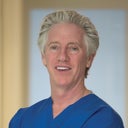Is it ok to take collagen supplements (pills) after upper blepharoplasty? Will this help or hinder the scar? I am 48 years old.
4 weeks post op with extended scars to brow, not in the preferred crows feet area.
4 weeks post op with extended scars to brow, not in the preferred crows feet area.



What’s trending? Who’s turning heads? Which TikTok myths need busting? We’ve got you. No fluff, no gatekeeping—just real talk. Get our free, unfiltered newsletter.